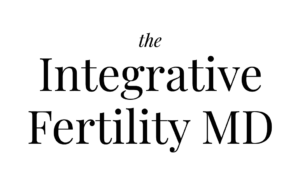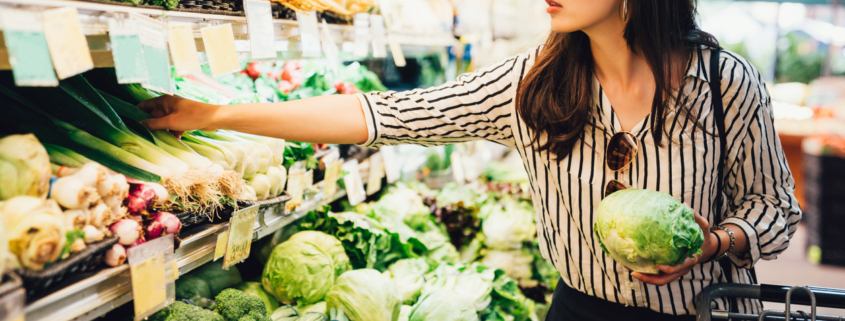A fertility journey can feel like a lot of uncertainty. You may feel a lot of anxiety with the ups and
downs. Many couples find it stressful and overwhelming. The good news is that decades of
research have shown that there is a lot you can do lifestyle-wise to boost your chance of
success with fertility treatments. Here are some simple and evidence-based tips.
1) Eat healthier
Nutrition is one of the best building blocks for a healthy pregnancy, so you want to prepare your
body by improving your overall diet. I encourage home cooking as often as possible to ensure
that you always have healthy and nutritious meals. I also advise cutting back on sugar, alcohol,
and processed foods in favor of more whole and nutrient-dense foods, such as vegetables and
fruits.
Eat more of
● Colorful vegetables and fruits. Even better if you can get them fresh and local.
● Whole grains and legumes
● Clean and organic meat, poultry, and fish
● Nuts and seeds
Eat less of
● Fast foods
● Pre-packaged foods, such as canned or frozen foods
● Packaged snacks like chips and crackers
● Candies
● Sugar and sugar-containing foods
2) Use clean cosmetic and household products
Hormone disruptors are chemicals that can throw off your hormones and reduce your fertility.
These include parabens, phthalates, BPA (bisphenol-A), perfumes, and triclosan, to name a
few. You can find them in typical cosmetics, soap, shampoo, sunscreens, and cleaning and
laundry products.
Since consumers have become more conscious of these hormone disruptors, you have a big list
of clean options to choose from nowadays. A great resource for this is the Environmental
Working Group at ewg.org. You can check the products you already have around the house on
there and shop from their safe EWG-verified list .
3) Eat the rainbow
I emphasize eating the rainbow—as many colors of plants as you can. Also, eat more plants.
The pigments that give plants their colors are antioxidants that protect your cells and DNA from
oxidative stress.
Oxidative stress, or having more free radicals than antioxidants, is a fact of the modern lifestyle.
In healthy doses, such as from exercising and getting the sun (without burning), free radicals
improve your ability to fight off more oxidative stress. However, too much oxidative stress, such
as from mental stress or toxic exposure, can damage sperms and eggs.
Fortunately, the solution is rather delicious. This summer, visit a farmer’s market to pick up your
local produce or sign up for a Community Supported Agriculture box. Try as many new
vegetables and fruits as you can. Learn to make new salads and cook your vegetables in
different ways.
4) Chill out
Your reproductive functions work best when you are in rest and digest mode. Yet, it is too easy
to be constantly on and always have so much expected of ourselves. We have all gone to
school to learn and accomplish things, but we are not taught enough about how to wind down,
turn off, and just be.
If you are gearing up for fertility treatment or preparing for pregnancy, now is a great time to
develop a stress-busting routine. Meditation, yoga, dancing, or walking in nature are excellent
(and free) ways to reduce your stress. Regular spa or acupuncture treatments are also amazing
ways to recharge. It is also a great time to revisit your priorities, eliminate stressors, and
establish healthy boundaries.
5) Get sun and vitamin D
Summer has arrived. It is a great time to enjoy being outside, from gardening to hiking. Although
the sun gets a bad rep because it is associated with skin cancer, getting sun can actually boost
your fertility. Healthy levels of sun exposure (without getting sunburns) can reduce inflammation,
balance your immune system, and promote blood vessel health, all of which are important for
pregnancy.
Many people only think of vitamin D as important for bone health and calcium absorption. But, in
fact, vitamin D is also essential for fertility and pregnancy. Studies have confirmed that healthy
vitamin D levels increases the odds of a successful pregnancy following IVF.
If you burn easily, be sure to use a non-toxic sunscreen. Also, the Dminder app has alarms that
can warn you to cover up before you burn. If you need to supplement, vitamin D3 form is better
than D2.
6) Get your shut-eye
Getting enough rest is an important part of preparing your body for a pregnancy. It can be hard
not to work, surf on social media, or watch TV late into the night, especially if you struggle to get
your “me” time during any other times of the day. But prioritizing sleep and your bedtime routine
is a worthy time investment. Restorative sleep helps reset your stress response and keep your
hormones balanced.
Allocate 1 – 2 hours to prepare yourself for bed. Create a sacred and relaxing bedtime routine.
You can spend this time taking a candlelit hot bath, reading a relaxing book, journaling, or
having sex (unless your doctor tells you not to). If you need to be on a screen or watch TV, use
blue-blocking glasses. These routines will help you get the most restorative sleep that will
support your fertility journey.
Getting fertility treatments and starting a family is an exciting, although very uncertain, journey.
You want all hands on deck to boost your chance of a successful pregnancy, and studies have
shown that the basics like these are very impactful.
If you are interested in learning more about integrative fertility, Dr. Shala Salem is an integrative fertility specialist who can help.
References:
- Rattan S, Zhou C, Chiang C, Mahalingam S, Brehm E, Flaws JA. Exposure to endocrine
disruptors during adulthood: consequences for female fertility. J Endocrinol .
2017;233(3):R109-R129. doi: 10.1530/JOE-17-0023 - S CM, Elmas C. The Effects of Oxidative Stress and Some of the Popular Antioxidants on
Reproductive System: A Mini Review. Journal of Nutrition & Food Sciences . 2016;06(02).
doi: 10.4172/2155-9600.1000464 - Fung JL, Hartman TJ, Schleicher RL, Goldman MB. Association of vitamin D intake and
serum levels with fertility: results from the Lifestyle and Fertility Study. Fertil Steril .
2017;108(2):302-311. doi: 10.1016/j.fertnstert.2017.05.037 - Zhao J, Huang X, Xu B, Yan Y, Zhang Q, Li Y. Whether vitamin D was associated with
clinical outcome after IVF/ICSI: a systematic review and meta-analysis. Reprod Biol
Endocrinol . 2018;16(1):13. doi: 10.1186/s12958-018-0324-3 - Hollis BW, Johnson D, Hulsey TC, Ebeling M, Wagner CL. Vitamin D supplementation
during pregnancy: double-blind, randomized clinical trial of safety and effectiveness. J Bone
Miner Res . 2011;26(10):2341-2357. doi: 10.1002/jbmr.463



